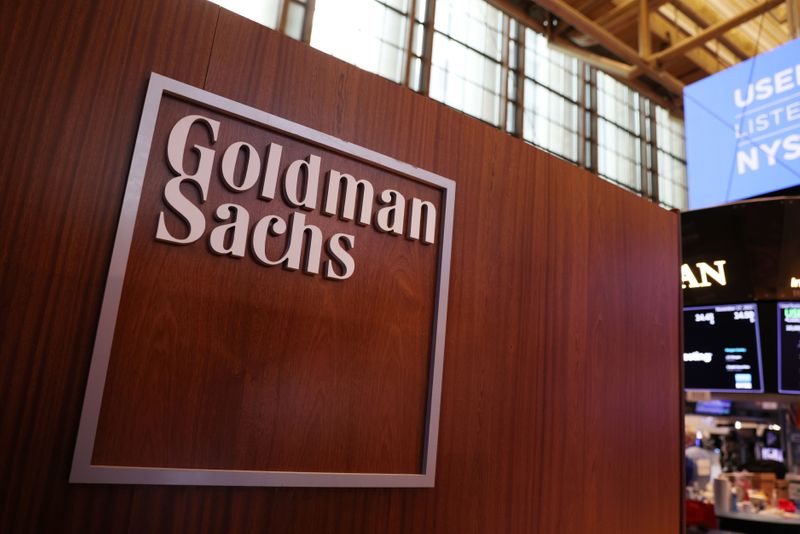Goldman Sachs Group Inc. (NYSE:GS), a prominent player in the Capital Markets industry with a market capitalization of $207 billion, has granted significant retention restricted stock units (RSUs) to its top executives, Chairman and CEO David Solomon and President and COO John Waldron, as disclosed in a recent SEC filing.
Each executive received 130,508 RSUs valued at $80 million, vesting over five years, signaling the firm's commitment to retaining its senior leadership. According to InvestingPro analysis, Goldman Sachs is currently trading near its 52-week high, with the stock showing signs of being undervalued based on comprehensive Fair Value calculations.
The RSUs, granted on Thursday, are designed to sustain the momentum of the firm's strategic priorities and ensure leadership stability. The awards, which will vest in January 2030, are contingent on continuous service, with limited exceptions such as death or disability. The RSUs include dividend equivalent rights and are subject to standard forfeiture and clawback provisions.
In addition to the retention grants, Goldman Sachs has introduced a Long Term Executive Carried Interest Incentive Program (CIP), which ties a portion of annual compensation for senior leaders to the performance of the firm's third-party alternative funds. The program, approved on January 14, aims to align senior executives' incentives with long-term shareholder interests, as well as to enhance competitive talent retention.
The CIP reduces the cash component of annual compensation, maintaining the same allocation to performance-based restricted stock units (PSUs) tied to firmwide performance metrics. The remaining compensation is split between cash and carry points, which are at risk and subject to fund performance over an extended period.
For 2024, CEO David Solomon's total annual compensation was set at $39 million, up from $31 million in 2023. The compensation package includes a $2 million base salary, $25.9 million in PSUs, $2.78 million in CIP carry points, and $8.33 million in cash. The firm's Compensation Committee based its decision on financial performance metrics and non-financial factors such as strategic execution and client orientation.
Goldman Sachs reported a net revenue of $53.51 billion, net earnings of $14.28 billion, and a return on equity (ROE) of 12.7% for the fiscal year ended December 31, 2024. The firm's stock price demonstrated remarkable performance, delivering a 66.46% return over the past year according to InvestingPro data.
The company maintains strong financial health with a P/E ratio of 14.83 and has consistently raised its dividend for 13 consecutive years. Want deeper insights? InvestingPro subscribers have access to over 15 additional key metrics and exclusive ProTips that could help inform your investment decisions.
This article is based on information provided in a SEC filing by Goldman Sachs Group Inc.
In other recent news, Goldman Sachs has been in the spotlight due to exceptional Q4 performance.
Analysts from Oppenheimer and Keefe, Bruyette & Woods (KBW) have maintained an Outperform rating for the company, with Oppenheimer raising the price target to $687 and KBW to $690. The company reported earnings per share (EPS) of $11.95, surpassing both Oppenheimer's and the consensus estimates, largely attributed to robust trading performance and total revenues of $13.9 billion.
Jefferies also upheld a Buy rating for Goldman Sachs, emphasizing the company's solid trading performance and favorable compensation ratio. Meanwhile, JPMorgan (NYSE:JPM) reiterated its Overweight rating for the company, following robust capital markets results.
Goldman Sachs' CEO David Solomon indicated the possibility of an early termination of the company's credit card alliance with Apple (NASDAQ:AAPL), despite this, improvements are anticipated in the return on equity. These are among the recent developments for Goldman Sachs.
This article was generated with the support of AI and reviewed by an editor. For more information see our T&C.
